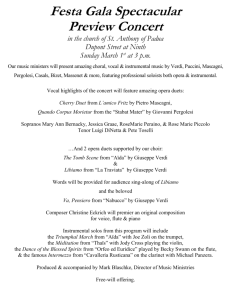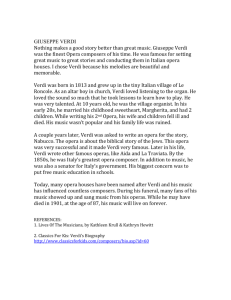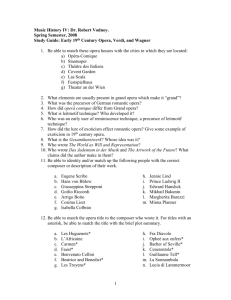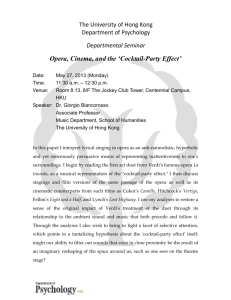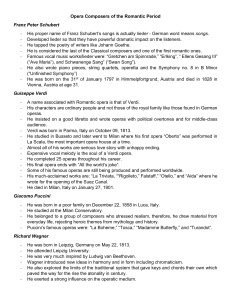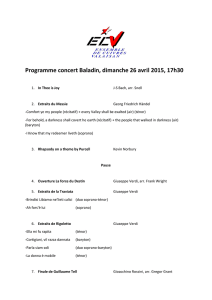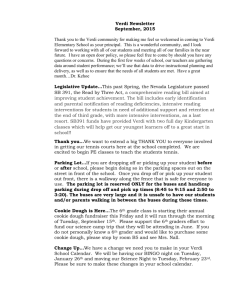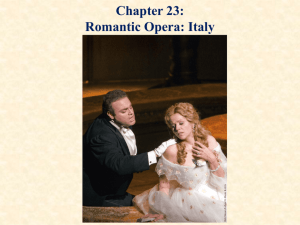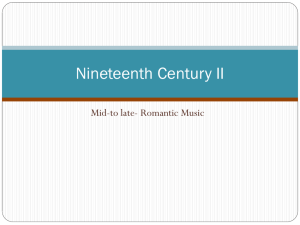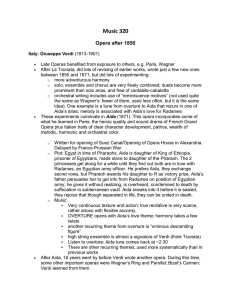3fdc710e
advertisement
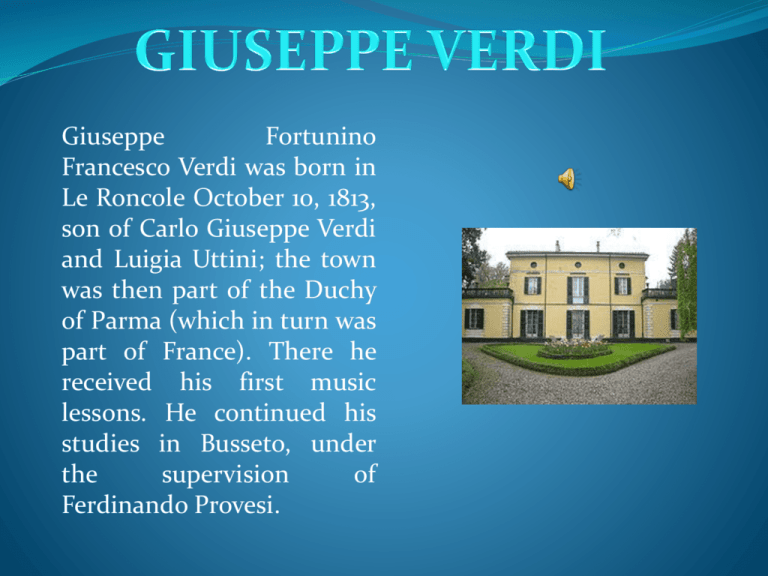
Giuseppe Fortunino Francesco Verdi was born in Le Roncole October 10, 1813, son of Carlo Giuseppe Verdi and Luigia Uttini; the town was then part of the Duchy of Parma (which in turn was part of France). There he received his first music lessons. He continued his studies in Busseto, under the supervision of Ferdinando Provesi. It soon becomes the organist of the Church of his people. Attempts to enter the Conservatory of the city of Milan but fails. We can say that their early hits are related to the political situation that existed in Italy. Apart from its artistic quality, his operas also served to exalt the nationalist character of the Italian people. Perhaps the Va pensiero (chorus of slaves from the opera Nabucco) is one of the most famous choirs of Italy for this reason. In this way, Verdi triumphs in Milan. Thanks to the successes achieved, Verdi can bet on a style more personal in his operas and pressure librettists and entrepreneurs to they risk and experiment a little more. It is notable, in this sense, the way in which begat the opera Macbeth, with arduous, and even despotic, testing to make the text most widely spoken that Sung. Verdi achieves its mission and the success of these operas is also noticeable. Follows a period of personal difficulties, with the death of his first wife and his daughter, which contrasts with the creation of his most popular and beloved operas, the aforementioned Rigoletto, La Traviata and Il Trovatore. Many consider the maturity of the composer is seen in the works that follow this period; for example, Don Carlos, which was composed for the Paris Grand Opera; Aida, composed for the Opera of Cairo; Otello and Falstaff, with a libretto by Arrigo Boito based on Shakespeare. Some of these works are not well received by the public or critics, who described as too Wagnerian, critical that the author always rejected. In his later years, Verdi composed some works not operatic. Despite not being particularly religious, he composed works liturgical, as the mass of Requiem (1874) and the Te Deum. He also composed the anthem of Nations, which includes the melodies of the hymns Italian, French, English and American, on text of the poet Arrigo Boito (1862) and a String Quartet in e minor (1873). He died in Milan, on 27 January 1901, due to a stroke. He left his fortune to the establishment of a nursing home for retired musicians that would bear his name: "Casa Verdi" in Milan, where he is buried. His funeral drew great popular commotion and to the passage of the funeral procession the audience spontaneously sang the chorus of slaves from Nabucco ("Va pensiero, sull'ali dorate").
